by Jeanne Allen
Yorktown Crier & Poquoson Post
July 21, 2016
Imagine a bi-partisan commission focused on one of America’s most pressing national issues. Imagine a consensus opinion on what needs to be done to save generations of American youth-at-risk.
Now imagine ignoring those recommendations.
Unthinkable to some, but the sad reality we see today.
Some 40 years ago, A Nation at Risk called the American public to arms, impressing on them the urgent need to refocus on a robust education for our nation’s youth. Nearly half a century later, we have forgotten this report’s impactful message. We forget it produced a generational commitment to education reform that endured.
Our commitment is shaken, and in danger of collapsing at the very moment a nationwide commitment to real, lasting education reform is so needed.
Education reforms enacted over the past few decades have been the driving force for better outcomes for millions of kids. Public, and private, school choice, as well as charter schools and other innovations created real opportunity, literally lifting children from poverty.
But scores on the Nation’s Report Card are a glaring reminder of how far we still need to go. Just 37 percent of all 12th graders are making the grade in reading and 25 percent in math. The achievement gaps are sadly growing among minority kids.
You might look around and see so many school choice and charter options and ask where’s the evidence of innovative education opportunities slowing down?
Consider Washington, DC, where education reform efforts are central to the District’s rebound, transforming its business, residential, and even tourist climate. Even there, charters are – illegally – underfunded compared to traditional schools and they have still met with such success.
Ohio, on the other hand, sees regulations – many of which have nothing to do with education at all – falsely imposed in the name of accountability that are creating obstacles for schools.
Charters should be required to demonstrate fiscal accountability and educational success. But so should traditional public schools, and private ones.
Charters were started under the notion of freedom from broken, bureaucratic rules in exchange for accountability to get to the end goal of radically improving children’s lives. Now, as states re-impose so many unrelated regulations on charter schools they are dangerously close to causing them to become the very thing they sought to change.
There’s a path forward.
We can use the lessons of today’s Innovation Economy, where a teenager with a bright idea can both change the world and become a business titan. In every field – from medicine to finance – advances are made today by trying new things, and disrupting old systems.
Everywhere, except education. There, it’s the same old excuse “it can’t be done.”
We can’t innovate because the decisions about our children’s learning are still largely regulated by outdated, inflexible laws.
We need to radically rethink everything education.
Our children are growing up in an increasingly global, digital world. They hail taxis on their smartphone. They interface & communicate on screen, all day.
And yet they’re in classrooms facing a blackboard.
The greatest need in education today is for learning opportunities built to fit our digital Innovative Age.
For real progress, we need an environment that welcomes rather than rejects innovation.
Innovators need to be players in the game, instead of working at the sidelines tossing their products into the court and hoping someone – likely someone raised on a one-size-fits-all textbook – catches them and chooses to use them.
Improved educational outcomes require innovation and opportunity throughout the education landscape.
It is time to offer freedom to those who want to engage in real innovation – freedom from burdensome regulations, yes, but also freedom to disrupt and engage new models and modalities.
Let’s reinvigorate the basic principles that started a generation of education reform and charter schools.
That means defining accountability as learning, and finding wholly new and meaningful ways to measure actual progress.
We must carve opportunities to match each student’s own needs with the institutions or learning environments that might best serve them. To do all of this, we must ensure that money is available to fund students wherever they are, and that education policy focuses on allowing innovation, creating opportunity, and yielding results.
The Center for Education Reform is proudly at the forefront of education innovation, working to create the policy environment that allows for unique solutions to take root in any school and every community. We welcome the involvement of anyone who, like the Commission behind A Nation at Risk, can set aside other disagreements and focus on where we agree: that our kids are our most important national treasure, and we must provide a new opportunity agenda in education so that their future – and in turn our nation’s – is secure.
Jeanne Allen is founder and CEO of The Center for Education Reform in Washington, D.C. and author of The New Opportunity Agenda.













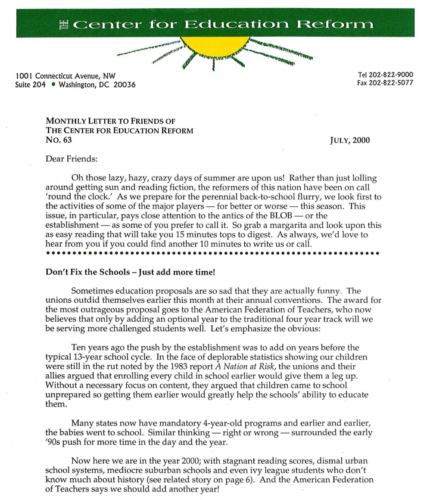

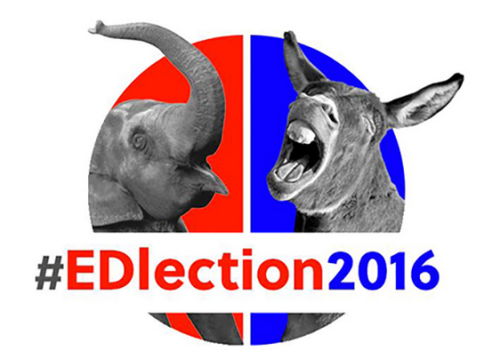

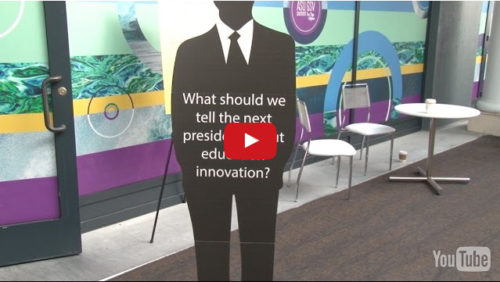

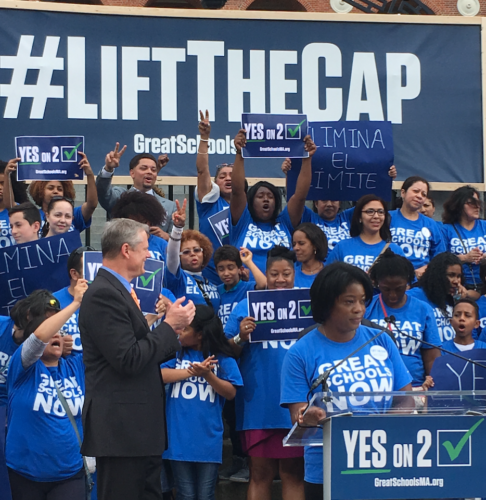
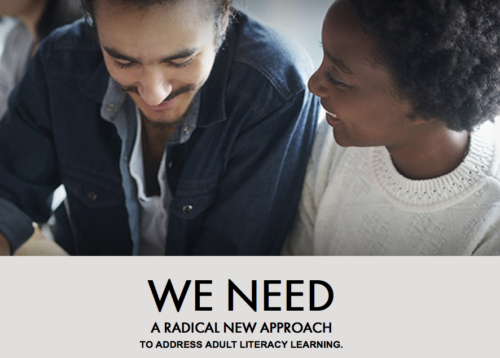
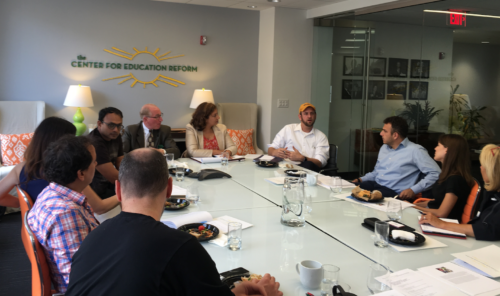
The Positive Aspect of The Trump Speech Plagiarism that Everyone Missed
Anyone with a computer or smartphone saw the internet explode with gifs, memes, and countless articles noting similarities between Michelle Obama’s speech and a speech delivered by Melania Trump at the Republican National Convention this week in Cleveland.
(For the record, it appears Michelle Obama’s words weren’t the only ones making a guest appearance that evening…)
As plagiarism accusations reached a fever pitch, Meredith McIver, a longtime employee of the Trump organization, released a statement taking blame for the incident:
Hold the phone. Melania Trump just admitted that she admires and is inspired by Michelle Obama and the messages in her speech. The same Michelle Obama whose husband has endorsed her husband’s rival in this election.
In this toxic political environment, is this not a sign that regardless of party and affiliation, there are universal messages that ring true?
We must come together around these. An excellent education for our kids is one of them.
In the words of CER Founder and CEO Jeanne Allen, “Let’s put down our ideological swords, roll up our sleeves, and make it happen.”